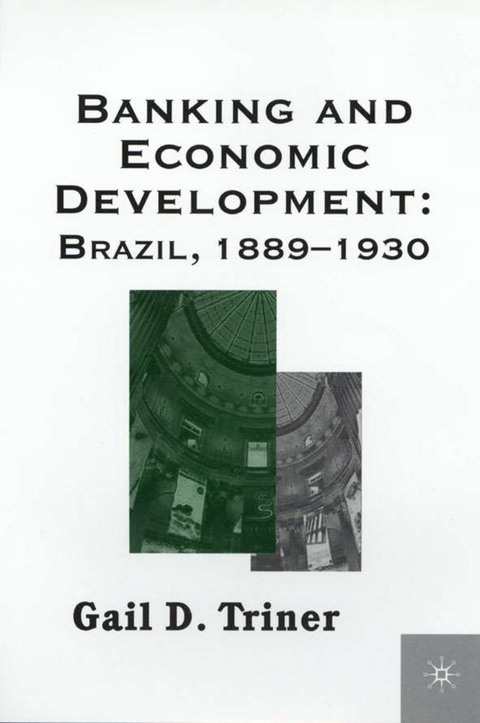
Banking and Economic Development
Brazil, 1889-1930
Seiten
2001
Palgrave Macmillan (Verlag)
978-0-312-23399-0 (ISBN)
Palgrave Macmillan (Verlag)
978-0-312-23399-0 (ISBN)
A banking system emerged in Brazil during the early 20th century that was efficiently and productively supported by economic development. Nevertheless, the banking system was an effective tool in the consolidation of an economy of national scope during these crucial years.
A banking system emerged in Brazil during the early 20th century that was efficiently and productively supported by economic development. However, it also contained the seeds of its future limitations. This banking system did not equalize conditions across sectors or regions as existing theory and historiography anticipated. Deeply embedded institutional constraints limited banking's contribution to long-term development. The three most important institutional constraints were insecure property rights, continual tension between the system's public and private sector functions, and competition between the Federal State and the states. Nevertheless, the banking system was an effective tool in the consolidation of an economy of national scope during these crucial years. As a modern banking system emerged, its use in national consolidation both magnified and reflected its limitations.
A banking system emerged in Brazil during the early 20th century that was efficiently and productively supported by economic development. However, it also contained the seeds of its future limitations. This banking system did not equalize conditions across sectors or regions as existing theory and historiography anticipated. Deeply embedded institutional constraints limited banking's contribution to long-term development. The three most important institutional constraints were insecure property rights, continual tension between the system's public and private sector functions, and competition between the Federal State and the states. Nevertheless, the banking system was an effective tool in the consolidation of an economy of national scope during these crucial years. As a modern banking system emerged, its use in national consolidation both magnified and reflected its limitations.
GAIL D. TRINER is Assistant Professor of History at Rutgers University, specializing in Latin American Economic History.
Introduction The Setting: Ushering in the Republic and the Twentieth Century State, Money, and Banking The Business of Banking Bankers, Banking and the Productive Sectors Institutional Development in Banking Regions, States and Banks
| Erscheint lt. Verlag | 16.2.2001 |
|---|---|
| Zusatzinfo | XV, 333 p. |
| Verlagsort | Gordonsville |
| Sprache | englisch |
| Maße | 140 x 216 mm |
| Themenwelt | Naturwissenschaften |
| Wirtschaft ► Betriebswirtschaft / Management ► Finanzierung | |
| Betriebswirtschaft / Management ► Spezielle Betriebswirtschaftslehre ► Bankbetriebslehre | |
| Wirtschaft ► Volkswirtschaftslehre | |
| ISBN-10 | 0-312-23399-X / 031223399X |
| ISBN-13 | 978-0-312-23399-0 / 9780312233990 |
| Zustand | Neuware |
| Haben Sie eine Frage zum Produkt? |
Mehr entdecken
aus dem Bereich
aus dem Bereich
warum unser Geld stirbt und wie Sie davon profitieren
Buch | Hardcover (2024)
FinanzBuch (Verlag)
CHF 41,95
denken und handeln wie ein professioneller Trader
Buch | Softcover (2023)
Vahlen, Franz (Verlag)
CHF 51,65


